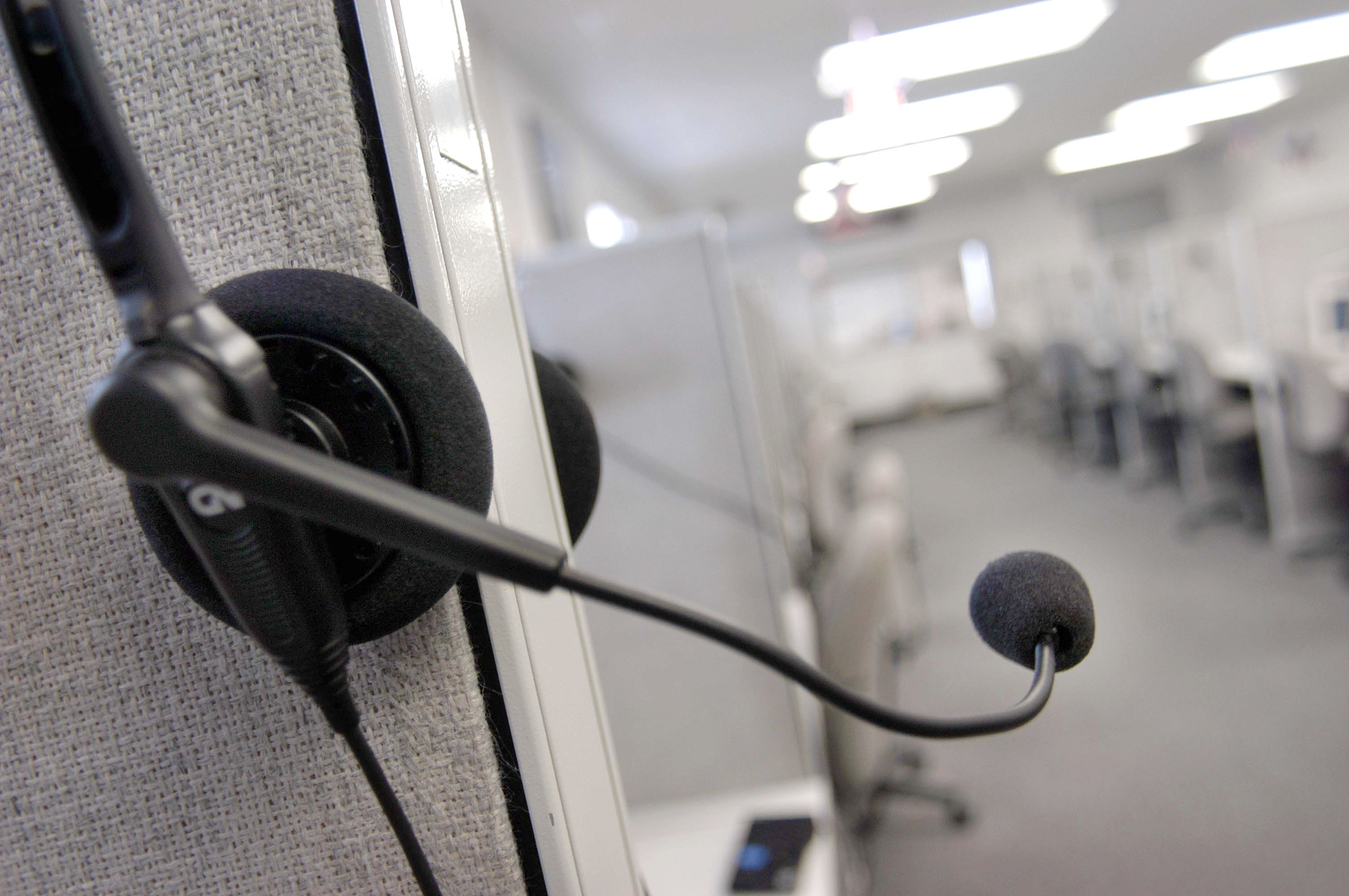
The Biden administration announced it is taking on what it calls the "doom loop" of customer service calls.
William Thomas Cain / Getty Images
When you have to call a customer service line, where's your patience on a scale of 1-10?
"Most people start at a nine or nine-and-a-half," says Amas Tenumah, who wrote a book called Waiting for Service. "But then you start this interaction and you're met with an automated system, right? Press one, press two..."
And then, after a few more menus and buttons, you manage to get past the automated system and to a human, only to be transferred to another operator where you need to repeat all your information. By this point, Tenumah says, your grace has worn thin.
"You are at a zero, and lots of people are in the negative," he said.
This week, the Biden administration announced it is taking on more of what it calls "everyday headaches and hassles that waste Americans' time and money." And it's doing that by having federal agencies make new business rules. Things like:
There are actions to simplify health insurance paperwork, crack down on fake product reviews, streamline parent-teacher communications in schools. And, yes, circumvent those automated customer service calls that the White House labels "doom loops."
It's all part of a wider economic mission to eliminate modern business practices that the Biden administration believes exploit Americans.
You're reading the Consider This newsletter, which unpacks one major news story each day. Subscribe here to get it delivered to your inbox, and listen to more from the Consider This podcast.
It’s called the “Time Is Money” initiative
If this sounds familiar, it's because the Biden administration has been steadily touting its broader pro-consumer agenda for a couple of years now.
President Biden mentioned his ongoing crusade against hidden or surprise surcharges in his State of the Union address for a second straight year in March.
"I'm also getting rid of junk fees. Those hidden fees added at the end of your bills without your knowledge," he said, later adding: "I'm saving American families $20 billion a year with all of the junk fees I'm eliminating. And I'm not stopping there."
So how exactly would this all work? All Things Considered host Ari Shapiro put this very question to Neera Tanden, the director of the White House Domestic Policy Council.
"The Consumer Financial Protection Bureau is engaging in a rulemaking process, which will basically create rules of the road," Tanden said. "So a good example to me is, you know, when you're doing a subscription — a streaming service or a cell phone service — if it's one or two clicks to get the service, it should be one or two clicks to get rid of the service."

President Biden delivers remarks on protecting consumers from hidden junk fees while seated among CEOs of ticketing companies such as SeatGeek, TickPick, Dice and Live Nation.
Alex Wong / Getty Images
Tanden says the administration sees many examples of companies wasting people's time and energy with practices that are really just about keeping your money for longer.
"Essentially, they create such a friction on people that they just give up and keep paying the service instead of ending a service they don't want and then getting a service they do want," she said.
There is pushback — and a call for your ideas
The initiative has already drawn sharp criticism from some sectors.
The Chamber of Commerce released a statement this week saying the initiative could actually hurt consumers: "Businesses succeed by being responsive to customers and have a far better track record of customer service, streamlined paperwork, and prompt response times than the federal government. Imposing heavy-handed regulations that micromanage business practices and pricing is the wrong approach, inevitably raising costs for consumers."
Tanden isn't buying it.
"I would say that, fundamentally, we think that this should be a baseline consumer protection," she said. "If your business model relies on trapping people into services they no longer need, that's a reflection on how you're not competitive and you're not giving a good service. And companies should compete on services, not on hurdles."
The White House says some agencies have already begun making changes, and now it wants Americans to share their ideas for other things that can be tackled. It has set up a Time Is Money portal where people can submit their ideas.
Copyright 2024 NPR